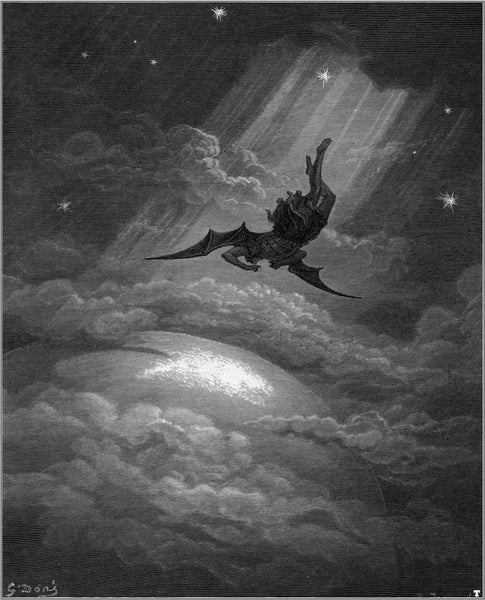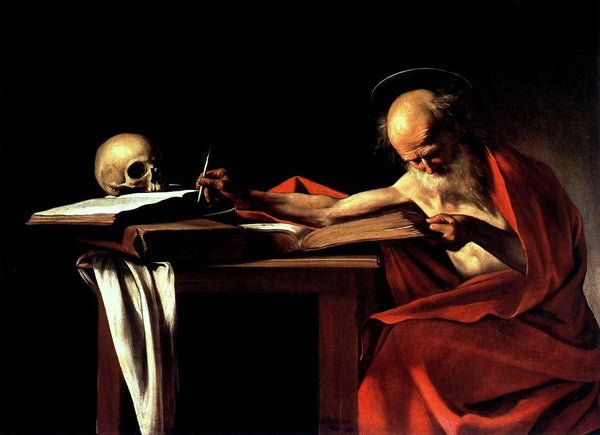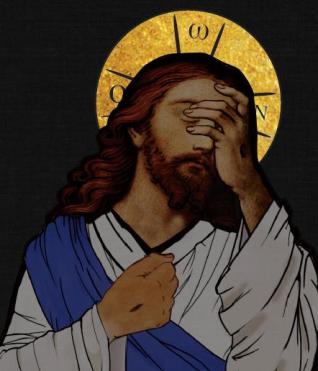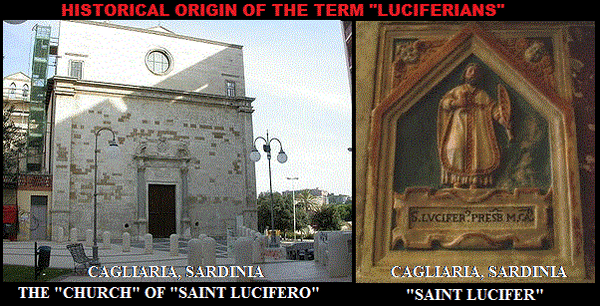Lucifer : The Greatly Misunderstood
Article excerpt from OulBooks Blog, just some basic info for starters
Lucifer : The Greatly Misunderstood

"Lucifer" in Isaiah 14:12 presents a minor problem to mainstream Christianity. It becomes a much larger problem to Bible literalists. LUCIFER IS NOT SATAN!
Lucifer makes its appearance in the fourteenth chapter of the Old Testament book of Isaiah, at the twelfth verse, and nowhere else:
"How art thou fallen from heaven, O Lucifer, son of the morning! How art thou cut down to the ground, which didst weaken the nations!"
"O Lucifer" was used to express "O shining one", and not the name of a biblical character, and certainly not Satan. Its own simple context clearly shows this.

The first problem is that Lucifer is a Latin word. So how did it find its way into a Hebrew manuscript, written before there was a Roman language? To find the answer, I consulted a scholar at the library of the Hebrew Union College in Cincinnati. What Hebrew name, I asked, was Satan given in this chapter of Isaiah, which describes the angel who fell to become the ruler of hell?
The answer was a surprise. In the original Hebrew text, the fourteenth chapter of Isaiah is not about a fallen angel, but about a fallen Babylonian king, who during his lifetime had persecuted the children of Israel. It contains no mention of Satan, either by name or reference. The Hebrew scholar could only speculate that some early Christian scribes, writing in the Latin tongue used by the Church, had decided for themselves that they wanted the story to be about a fallen angel, a creature not even mentioned in the original Hebrew text, and to whom they gave the name "Lucifer."
Why Lucifer? In Roman astronomy, Lucifer was the name given to the morning star (the star we now know by another Roman name, Venus). The morning star appears in the heavens just before dawn, heralding the rising sun. The name derives from the Latin term lucem ferre, bringer, or bearer, of light." In the Hebrew text the expression used to describe the Babylonian king before his death is Helal, son of Shahar, which can best be translated as "Day star, son of the Dawn." The name evokes the golden glitter of a proud king's dress and court (much as his personal splendor earned for King Louis XIV of France the appellation, "The Sun King").

The scholars authorized by King James I to translate the Bible into current English did not use the original Hebrew texts, but used versions translated ... largely by St. Jerome in the fourth century. Jerome had mistranslated the Hebraic metaphor, "Day star, son of the Dawn," as "Lucifer," and over the centuries a metamorphosis took place. Lucifer the morning star became a disobedient angel, cast out of heaven to rule eternally in hell. Theologians, writers, and poets interwove the myth with the doctrine of the Fall, and in Christian tradition Lucifer is now the same as Satan, the Devil, and --- ironically --- the Prince of Darkness.
So "Lucifer" is nothing more than an ancient Latin name for the morning star, the bringer of light. That can be confusing for Christians who identify Christ himself as the morning star, a term used as a central theme in many Christian sermons. Jesus refers to himself as the morning star in Revelation 22:16: "I Jesus have sent mine angel to testify unto you these things in the churches. I am the root and the offspring of David, and the bright and morning star."
And so there are those who do not read beyond the King James version of the Bible, who say 'Lucifer is Satan: so says the Word of God'...."
Henry Neufeld (a Christian who comments on Biblical sticky issues) went on to say,
"this passage is often related to Satan, and a similar thought is expressed in Luke 10:18 by Jesus, that was not its first meaning. It's primary meaning is given in Isaiah 14:4 which says that when Israel is restored they will "take up this taunt against the king of Babylon . . ." Verse 12 is a part of this taunt song. This passage refers first to the fall of that earthly king...
How does the confusion in translating this verse arise? The Hebrew of this passage reads: "heleyl, ben shachar" which can be literally translated "shining one, son of dawn." This phrase means, again literally, the planet Venus when it appears as a morning star. In the Septuagint, a 3rd century BC translation of the Hebrew scriptures into Greek, it is translated as "heosphoros" which also means Venus as a morning star.
How did the translation "lucifer" arise? This word comes from Jerome's Latin Vulgate. Was Jerome in error? Not at all. In Latin at the time, "lucifer" actually meant Venus as a morning star. Isaiah is using this metaphor for a bright light, though not the greatest light to illustrate the apparent power of the Babylonian king which then faded."
Therefore, Lucifer wasn't equated with Satan until after Jerome. Jerome wasn't in error. Later Christians (and Mormons) were in equating "Lucifer" with "Satan".

So why is this a problem to Christians? Christians now generally believe that a fallen Satan (or the Devil or Lucifer who they equate with Satan) is a being who has always existed (or who was created at or near the "beginning"). Therefore, they also think that the 'prophets' of the Old Testament believed in this creature. The Isaiah scripture is used as proof (and has been used as such for hundreds of years now). As Elaine Pagels explains though, the concept of Satan has evolved over the years and the early Bible writers didn't believe in or teach such a doctrine.
For instance, in the original Hebrew texts, Satan was not opposed to God. Satan was working with God. Satan was sent down to do Gods most important work. He did not fall from grace. The Roman Catholic Church takeover is responsible for spreading a literalist interpretation, of a translation of a translation of a translation. It fed the people a dualistic and highly contradictory gospel. Now its God VS Satan, which is the total opposite of the original teachings!
It is imperative that those who wish to gain the Jew-Els that the Bible has, understand that English language Bibles are far removed from original understanding, simply by language barrier.
The irony for those who believe that "Lucifer" refers to Satan is that the same title ('morning star' or 'light-bearer') is used to refer to Jesus, in 2 Peter 1:19, where the Greek text has exactly the same term: 'phos-phoros' 'light-bearer.' This is also the term used for Jesus in Revelation 22:16.

The literal meaning of phosphorus (Phosp-Horus = Lucifer) is "Light-Bringer."
Here is the definition that you will find on Wikipedia; Phosphorus (Greek Φωσφόρος Phōsphoros), a name meaning "Light-Bringer", is the Morning Star, the planet Venus in its morning appearance. Another Greek name for the Morning Star is Ἑωσφόρος (Heōsphoros), which means "Dawn-Bringer". The Latin word corresponding to Greek Phosphorus is "Lucifer". It is used in its astronomical sense both in prose and poetry.
And then there is this....

What if I told you that a well respected Christian Bishop was named Lucifer, and was elevated to a saint in the church? If Lucifer was truly believed to be Satan, Im sure he wouldnt have been made a saint, or even allowed his high position in the church. Christianity, unfortunately took a turn fo the worse in the 4th century, and Bishop St. Lucifer of Cagliaria was in the front lines of the fight against the invading Roman horde, but they lost, and thus was birthed the Roman Catholic Church.
Isnt it amazing how so many that claim to follow Christianity know so little about such an important distinction? Their ideas of Lucifer come from Hollywood and ignorant preachers. Lucifer is Satan? NO! Lucifer is Jesus! And original scripture clearly supports this.
Christianity is under attack today, and we risk losing much ancient spiritual knowledge simply because modern Christians do not know how to interpret their Bibles. Modern Christians look crazy with their overzealous ill-knowledge.
The Bible is not something you can just read and expect to understand. One must read it in respect to previous versions. It takes work and dedication. It is meant for the few willing to go out of their way to understand. That is how the scriptures become illuminated.
"Lucifer, the Light-bearer! Strange and mysterious name to give to the Spirit of Darkness! Lucifer, the son of the morning! Is it he who bears the Light, and with it's splendors intolerable blinds feeble, sensual or selfish Souls? Doubt it not!"
— Albert Pike (Morals & Dogma)
"What is more absurd and more impious than to attribute the name of Lucifer to the devil, that is, to personified evil. The intellectual Lucifer is the spirit of intelligence and love; it is the paraclete, it is the Holy Spirit, while the physical Lucifer is the great agent of universal magnetism."
— Eliphas Levi (The Mysteries Of Magic)
"Lucifer represents.. Life.. Thought.. Progress.. Civilization.. Liberty.. Independence.. Lucifer is the Logos.. the Serpent, the Savior."
— Helena Petrovna Blavatsky (The Secret Doctrine)
"The fact that millions of people share the same vices does not make these vices virtues, the fact that they share so many errors does not make the errors to be truths, and the fact that millions of people share the same form of mental pathology does not make these people sane."
~ Erich Fromm
Tags:
Replies to This Discussion
-
Permalink Reply by Thabo on May 19, 2022 at 4:41am
-
Lucifer the 7 Great Spirits (the Holy Kumaras) from the planet Venus who endowed humankind with Mind about 18 millions of years ago
-
ModeratorPermalink Reply by John on May 20, 2022 at 3:03pm -
Hi -
I was wondering what source you got this from? just curious.
-
Permalink Reply by Thabo on May 20, 2022 at 3:31pm
-
under stanza 13 on the second volume of The Secret Doctrine there's a quote
"It thus becomes clear why the Agnishwatta, devoid of the grosser creative fire, hence unable to create physical man, having no double, or astral body, to project, since they were without any form, are shown in exoteric allegories as Yogis, Kumaras (chaste youths), who became “ rebels,” Asuras, fighting and opposing gods,* etc., etc. Yet it is they alone who could complete man, i.e., make of him a self-conscious, almost a divine being—a god on Earth. The Barhishad, though possessed of creative fire, were devoid of the higher Mahat-mic element. Being on a level with the lower principles—those which precede gross objective matter—they could only give birth to the outer man, or rather to the model of the physical, the astral man"
-
Permalink Reply by Thabo on May 20, 2022 at 3:34pm
-
there's another quote under Stanza IV
"All these are the Manasam and Rajasas : the K**âras, Asuras, and other rulers and Pitris, who incarnated in the Third Race, and in this and various other ways endowed mankind with Mind"
-
Permalink Reply by Thabo on May 20, 2022 at 3:35pm
-
under stanza IV there's another quote
"The Endowers of man with his conscious, immortal ego, are the “ Solar Angels ”—whether so regarded metaphorically or literally. The mysteries of the Conscious ego or human Soul are great. The
esoteric name of these “ Solar Angels ” is, literally, the “ Lords ” (Nath) of “ persevering ceaseless devotion ” (pranidhâna). Therefore they of the fifth principle (Manas) seem to be connected with, or to have originated the system of the Yogis who make of pranidhâna their fifth observance (see Yoga Shastra, II., 32.) It has already been explained why the trans-Himalayan Occultists regard them as evidently identical with those who in India are termed K**âras, Agnishwattas, and the Barhishads."
-
Permalink Reply by Thabo on May 20, 2022 at 3:40pm
-
under stanza VII there's a quote
"2. From the First (race) emanated the second, called the “ Sweat-born ”‡ and the “ Boneless.” This is the Second Root-Race, endowed by the preservers (Râkshasas)* and the incarnating gods (Asuras and the K**âras) with the first primitive and weak spark (the germ of intelligence) . . And from these
in turn proceeds :—
3. The Third Root-Race, the “ Two-fold ” (Androgynes). The first Races hereof are shells, till the last is “ inhabited ” (i.e., informed) by the Dhyanis."
-
Permalink Reply by Thabo on May 20, 2022 at 3:43pm
-
another quote in stanza VII
"27. (Then) the Third (race) became the vahan (vehicle) of the Lords of Wisdom. It created Sons of “ Will and Yoga,” by Kriyasakti (b), it created them, the Holy Fathers, Ancestors of the Arhats. . . .
(a) How did they create, since the “ Lords of Wisdom ” are identical with the Hindu Devas, who refuse “ to create ” ? Clearly they are the K**âras of the Hindu Pantheon and Purânas, those elder sons of Brahmâ, “ Sanandana and the other sons of Vedhas,” who, previously created by him “ without desire or passion, remained chaste, full of holy wisdom and undesirous of progeny ?"
-
Permalink Reply by Thabo on May 20, 2022 at 3:49pm
-
a quote in stanza X
"Thus the “ Self-created ” and the “ Self-existent ” projected their pale shadows ; but group the Third, the Fire-Angels, rebelled and refused to join their Fellow Devas. Hindu exotericism represents them all as Yogins, whose piety inspired them to refuse creating, as they desired to remain eternally K**âras, “ Virgin Youths,” in order to, if possible, anticipate their fellows in progress towards Nirvana—the final liberation. But, agreeably to esoteric interpretation, it was a self-sacrifice for the benefit of mankind. The “ Rebels ” would not create will-less irresponsible men, as the “ obedient ” angels did ; nor could they endow human beings
with only the temporary reflections of their own attributes ;"
-
Permalink Reply by Thabo on May 20, 2022 at 3:50pm
-
"To close this rather lengthy comment, the Secret Doctrine teaches that the Fire-Devas, the Rudras, and the K**âras, the “ Virgin-Angels,” (to whom Michael and Gabriel, the Archangels, both belong), the divine
“ Rebels ”—called by the all-materializing and positive Jews, the Nahash or “ Deprived ”—preferred the curse of incarnation and the long cycles of terrestrial existence and rebirths, to seeing the misery (even if unconscious) of the beings (evolved as shadows out of their Brethren) through the semi - passive energy of their too spiritual Creators. "
-
Permalink Reply by Thabo on May 20, 2022 at 3:52pm
-
"Therefore, the FLAMES, whose functions are confused in the exoteric books, and who are called indifferently Prajâpati, Pitris, Manus, Asuras, Rishis, K**âras,* etc. etc., are said to incarnate personally in the Third Root-Race and thus find themselves “ reborn over and over again.” In the Esoteric doctrine they are generally named the Asuras, or the Asu-ra Devata or Pitar-devata (gods) for, as said, they were first Gods—and the highest—before they became “ no-gods,” and had from Spirits of Heaven fallen into Spirits of the Earth †—exoterically, note well, in orthodox dogma"
-
Permalink Reply by Thabo on May 20, 2022 at 3:53pm
-
"Here, by the seven great Rishis, the seven great rupa hierarchies or classes of Dhyan Chohans, are meant. Let us bear in mind that the Saptarshi (the seven Rishis) are the regents of the seven stars of the Great Bear, therefore, of the same nature as the angels of the planets, or the seven great Planetary Spirits. They were all reborn, all men on earth in various Kalpas and races. Moreover, “ the four preceding Manus ”
are the four classes of the originally arupa gods—the K**âras, the Rudras, the Asuras, etc. : who are also said to have incarnated. They are not the Prajâpatis, as the first are, but their informing principles—some of which have incarnated in men, while others have made other men simply the vehicles of their reflections"
© 2026 Created by Theosophy Network.
Powered by
![]()